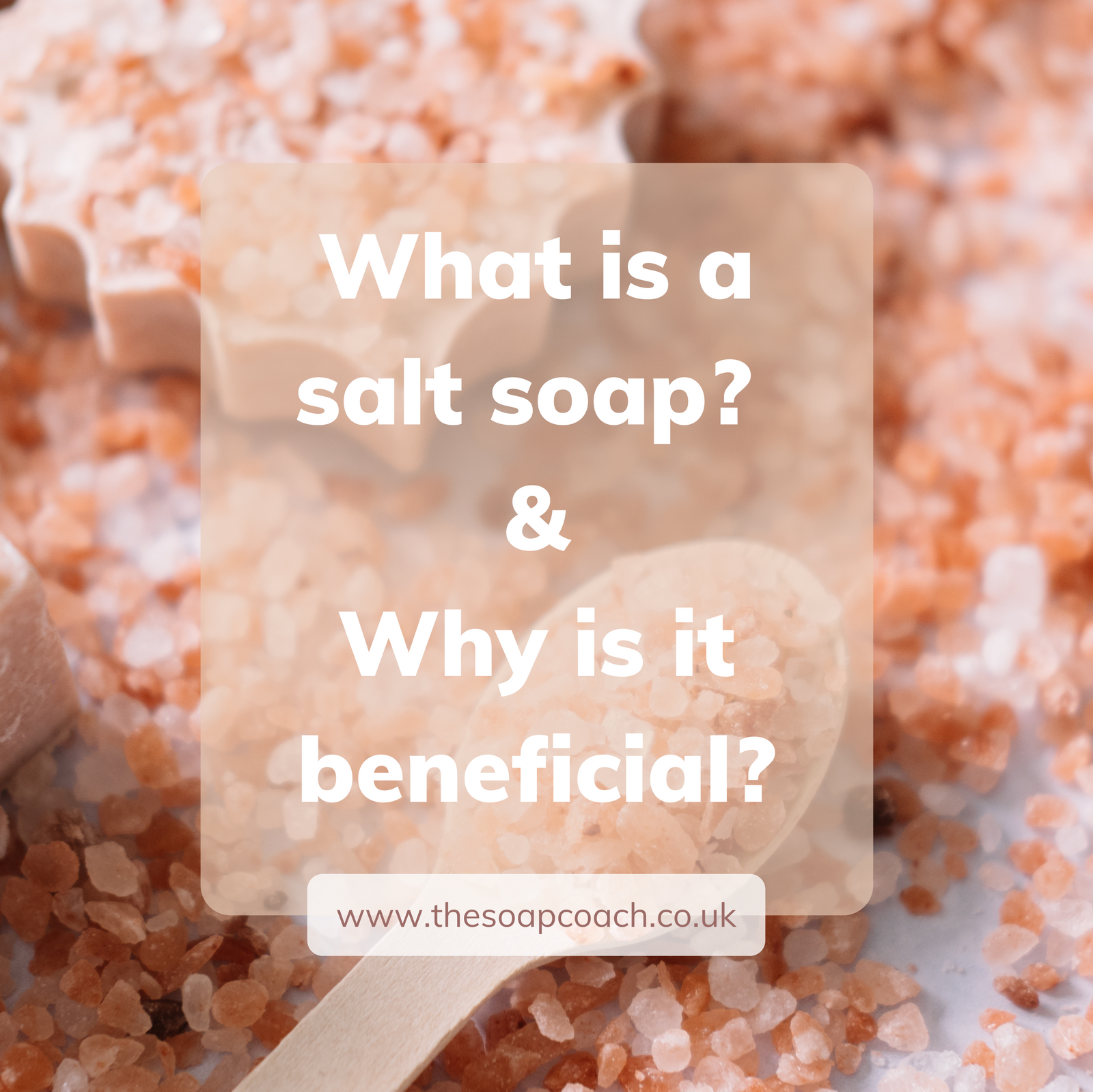Speciality Soaps - Focus on Salt Soap

What is salt soap and why is it beneficial.
Salt makes a beautiful bar of soap which is often marketed as a spa bar.
But why would you use salt in your handmade soap?
Well, just like the effect of sea water on the skin, salt can be amazing for drawing out toxins and for acne related problems. Sea salt in particular contains various trace minerals such as iron, zinc and potassium as well as calcium. Salt is also anti-bacterial and surprisingly can be deeply soothing hence the benefits that are said to be obtained from salt baths.
Salt soap is hailed as a hero far and wide for it's ability to help with skin problems ,although no medical claims can of course be made without clinical trials.
From a chemistry point of view salt makes soap hard - really hard so it also makes a long lasting bar. For this reason many soap makers will add a small amount of salt to their soap which will also assist with unmoulding the bars.
Salt is however, a lather killer, for this reason you will never obtain a big bubbly lather from a salt soap bar however it brings it's own speciality to the mix with a beautiful, lotion like feel instead that is smooth and silky.
What is a true salt soap?
Salt soap will generally contain between 50 and 100% of the weight of oils in salt. Yes you did read that correctly. So a batch of soap made using 500g of oils for example, will contain between 250g and 500g of salt. It does make an incredibly dense bar which is truly unique.
You may think that salt soap would be scratchy or exfoliating but that is not the case at all, the salt dissolves readily in warm water as you lather it up so there is very little texture to it as you use it, unless you use coarse salt in which case you may find it a little uncomfortable on the skin.
What is brine soap? Is it salt soap just with another name?
In a word no. Brine soap is made by dissolving your salt in your lye before adding it to your oils. It has a much lower level of salt but it does still create a lovely hard bar.
Can I use any salt in salt soap?
No you can't. Table salt for example, often has anti-caking agents added to it and is not suitable.
Epsom salts are in fact not salt at all - it is magnesium sulphate and if you try to use this in salt soap you will end up with a soft , gooey bar of soap.
Is salt soap difficult to make?
I have read that making salt soap is 'challenging'. That is not the case. It does have some quirks and there things you can do to really aid your success such as using a thicker trace and individual moulds but there is no right or wrong way as such. And everyone will have their preferences but like most things it is often taking that first step into the unknown. I love running the salt soap classes as they are fun and quirky. And it gives me an opportunity to talk all things soap and as they are intermediate classes everyone already knows the basics so we don't need to do the science and the maths bit. Win win all round.
If you are looking for a simple salt soap recipe I recommend starting with a simple coconut oil recipe, coconut oil gives big bubbles so it helps with the lather killing situation. Do use a 20% super fat as a minimum though. Here is a small 500g batch size to get you started. If you are not familiar with cold process soap making please do not try this until you have learnt the basics.
500g Coconut Oil
140g water
76g sodium hydroxide
250g sea salt or pink himalayan salt
15g essential oil.
I tend to soap at around 80 to 90f for coconut oil soap, you want a thick enough batter to suspend the salt before popping it in the moulds, and ideally use individual moulds as this sets up hard and fast.
If learning the ropes of salt soap making appeals to you and you would like a bit more help, inspiration and video do check out my Focus on Salt Soaps Mini Course it covers the basics of salt soap making and includes 3 different recipes including these gorgeous hearts and 3 video tutorials for just £19.99. You can find more information on that here.

Thankyou Diane, re moulds, I don’t off the top of my head but you could ask a local wood shop to cut to
lengths of plywood to size and then screw them together to make your own bespoke moulds in a size that suits you, that is what we did. V cheap way of doing it too – I just line them with greaseproof paper. Hope that helps
I absolutely love all your hints and tips, and information on soap making. Could you recommend the best place to get a long 2kg loaf mold? I’m finding it really difficult and only found The Soap Kitchen but out of stock. Many thanks!
Leave a comment